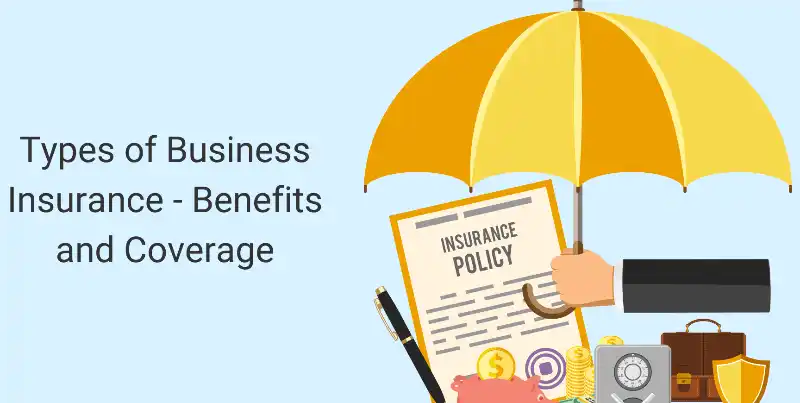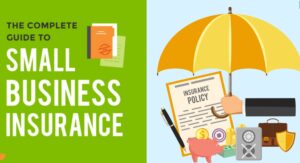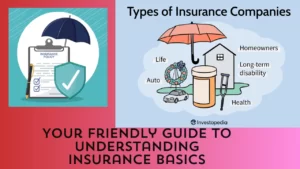Business Insurance Plans: Starting and running a business involves a multitude of risks, and safeguarding your venture with the right insurance is crucial for long-term success. Selecting the appropriate business insurance plans can be a complex process, but it is an essential aspect of responsible entrepreneurship. This article aims to guide business owners through the key considerations and steps to choose the right insurance coverage for their specific needs.
Assess Your Business Risks
Before diving into insurance options, it’s imperative to conduct a thorough risk assessment for your business. Identify potential risks such as property damage, liability issues, employee injuries, and other industry-specific concerns. Understanding your business risks is the first step in determining the types of insurance coverage you’ll need.
Understand Basic Types of Business Insurance
There are several types of business insurance, each designed to address different aspects of risk. Some common types include:
1. General Liability Insurance (GLI)
- Bodily injury to someone else
- Property damage to another person’s belongings
- Personal injury, like libel or slander
2. Commercial Property Insurance
3. Business Income Insurance
4. Professional Liability Insurance
5. Workers’ Compensation Insurance
- Pay for their medical bills
- Replace most of their lost wages if they miss work to recover
- Cover funeral costs if they lose their life due to a work-related injury or illness
- Pay for ongoing care, like physical therapy
6. Data Breach Insurance
- Notify impacted individuals
- Offer identity theft monitoring services
- Create a public relations campaign
7. Commercial Umbrella Insurance
8. Commercial Auto Insurance
Not every business requires the same insurance coverage. Tailor your insurance plans to the specific needs and risks of your industry. For instance, a manufacturing business may need product liability insurance, while a technology company may prioritize cyber liability coverage.
Consider Business Size and Structure
The size and structure of your business can influence the type and amount of insurance needed. Small businesses may opt for a Business Owner’s Policy (BOP), which combines general liability, property, and business interruption insurance into a cost-effective package. Larger businesses might require more customized and expansive coverage.
Research Insurance Providers
Take the time to research and compare insurance providers. Look for reputable companies with a strong financial standing, positive customer reviews, and experience in serving businesses similar to yours. Consider seeking recommendations from industry peers and consulting with insurance brokers for expert advice.
Evaluate Policy Limits and Deductibles
Carefully review policy limits and deductibles. Ensure that coverage limits are sufficient to protect your business adequately. Understand how deductibles work and choose amounts that align with your risk tolerance and financial capabilities.
Review Policy Exclusions
Examine policy exclusions to understand what is not covered. Be aware of any gaps in coverage and explore options for additional endorsements or specialized policies to fill those gaps.
Seek Professional Advice
Navigating the complexities of business insurance can be challenging. Consider seeking advice from insurance professionals or consultants who can provide insights tailored to your business’s unique needs.
Features of Business Insurance
Though having your business insured is not mandatory in India but it is necessary. Business insurance India comes with certain features that make the policy worth your money:
- Damage to the property due to fire or natural disasters such as flood, earthquake, storm etc.
- Loss due to theft
- Business insurance covers third party liability on the business
- Injury or death of an employee during the course of his/her work is covered
- It covers the loss of profits after an outbreak of a calamity
- Liability arising out of negligence and errors
Benefits of Business Insurance Policy
The benefits of Company Insurance plans are as follows:
- Company insurance plan protects the business against losses due to an interruption of the normal course of the business by covering the disasters like fire or a natural calamity
- It offers credibility to the company by getting its business insured
- Group policies offered to assure the safety of the employees and help the employers retain the talents within the company. Eventually, it aids in more growth of the company.
- These days clients also consider those companies that are well-insured with business insurance.
- The physical assets of a business such as computers, furniture etc. are well-protected from theft if it is covered by a business insurance policy.
How to Buy Business Insurance India
Buying insurance can be interesting only if you follow the right process. If you are looking for business insurance, you can buy either online or offline. To go online, you must know who all are selling business insurance. Go to the official websites and go through the plans in detail. If you find anything that suits your requirements, next go to the compare option. Here you’ll get a fair idea of how a particular plan works for your needs. you can get to know the different premiums and coverage offered by the insurers. The last step is to finalise one and pay the premiums online.
On the other hand, you can buy offline as well, by approaching the preferred insurance provider. This is the traditional way of buying insurance, which requires you to visit the branch, know about the plans and buy. You can buy even approaching an agent as well, provided he/she is well-versed with the product information and you are not being misled.
Things to Consider before buying Business Insurance Policy
While buying business insurance, you should consider factoring certain things:
Assess Your Risks
An insurance cover is offered after assessing the risk appetite of the applicant, otherwise, how will the insurer determine whether they are going to cover your business? Firstly, they estimate the level of risk your business is exposed to. This is called Underwriting where the underwriter reviews whether it will offer all or the portion of the coverage applied for. Every policy comes with a premium and deductible. Premium is the amount you pay for availing the policy benefits while deductible is a pre-decided amount that you agree to pay at the time of claim. Simply put, lower the deductible you pay, higher your insurance premium will be or vice versa.
So, only after assessing your risk, you can decide whether you can afford a higher deductible to save on your annual premiums.
Shop Around
Don’t just buy whatever plan you get randomly. Shop around, do your research and buy. You can take help from online insurance aggregators in the process of suggesting plans.
Insurance Coverage
No doubt the extent of coverage varies insurer to insurer. While buying business insurance, you can take the help of experts who actually know the issues that may face by your business and buy accordingly. At times, insurance brokers can give you a fair idea. Whatever the situation, make sure the coverage offered is apt for the insurance needs of your business.
Approach a Reputable Agent ONLY
The principle of selecting a broker to buy company insurance is he should be authorised or reputable!
Make sure the person pitch you the right only, with sufficient knowledge about the product. He should be a person with whom you can clear your doubts. If not you can ask your family or friends using this policy. Go for online reviews of the users and buy.
Review Your Insurance Needs
With your business, the liabilities also go up. And you can’t afford being uncovered during a disaster that may hugely affect your finances. Moreover, the cover you opted for at the initial stage of your business, may not suffice the current insurance needs. That’s why it is necessary to assess the needs and let the insurer know in case you want additional coverage.
Other Types of Important Insurance
Petrol Pump Insurance
This insurance designed for petrol pumps, CNG stations to offer optimum protection to the assets inside the petrol stations against the risks associated. This policy protects the properties, cash, assets etc. against fire, theft, natural disasters, burglary, legal liability, dishonesty of workers or other perils. The premium for Petrol Pump Insurance is calculated basis on the covers opted for and the values of the property or machinery.
Restaurant Insurance
However, not offered by many insurers in India, this policy is tailor-made in covering your business against the threats like, fire, act of God, malicious damage, riot, burglary, damage to property, loss of money, loss of money while in transit, physical loss of electronic equipments in the premise, machinery breakdown, personal accident, public liability and so on.
Professional Liability Insurance
Professional Liability Insurance also referred to as Professional Indemnity Insurance is designed to mitigate the legal expenses arising out of a professional lawsuit by a third-party. If a third party sustains any injury, damage or death due to the services offered by the professionals, the possibility of a lawsuit is higher. To bear those legal expenses, Professional Liability comes in handy. This policy can be availed by professionals including doctors, lawyers, Chartered Accountants, architects, organisational bodies such as law firms, hospitals, BPOs etc. Some of the insurers offering Professional Liability Insurance include ICICI Lombard, Bajaj Allianz, United India Insurance, National Insurance etc.
Conclusion: Choosing the right business insurance plans is a critical aspect of responsible business management. By conducting a thorough risk assessment, understanding your business’s specific needs, and selecting appropriate coverage from reputable providers, you can safeguard your venture against unforeseen challenges. Remember that insurance is not a one-size-fits-all solution, so take the time to customize your coverage to ensure comprehensive protection for your business.





























